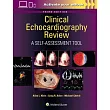In this book, the authors systematically and comprehensively discuss textual emotion classification by using deep broad learning. Since broad learning possesses certain advantages such as simple network structure, short training time and strong generalization ability, it is a new and promising framework for textual emotion classification in artificial intelligence. As a result, how to combine deep and broad learning has become a new trend of textual emotion classification, a booming topic in both academia and industry.
For a better understanding, both quantitative and qualitative results are present in figures, tables, or other suitable formats to give the readers the broad picture of this topic along with unique insights of common sense and technical details, and to pave a solid ground for their forthcoming research or industry applications. In a progressive manner, the readers will gain exclusive knowledge in textual emotion classification using deep broad learning and be inspired to further investigate this underexplored domain.
With no other similar book existing in the literature, the authors aim to make the book self-contained for newcomers, only a few prerequisites being expected from the readers. The book is meant as a reference for senior undergraduates, postgraduates, scientists and researchers interested to have a quick idea of the foundations and research progress of security and privacy in federated learning, and it can equally well be used as a textbook by lecturers, tutors, and undergraduates.



 天天爆殺
天天爆殺  今日66折
今日66折 
























 博客來
博客來 博客來
博客來 博客來
博客來 博客來
博客來 博客來
博客來